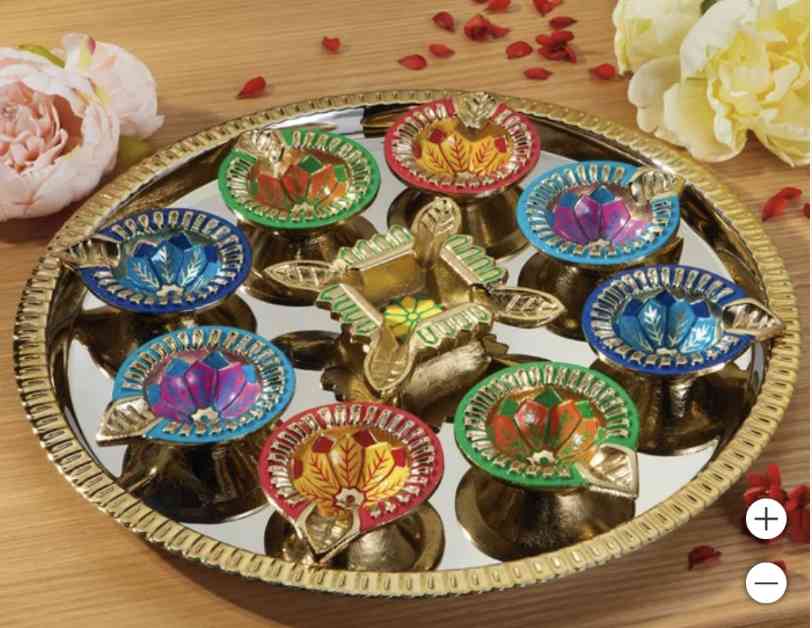Diwali, the Festival of Lights, is making a significant impact on U.S. retailers as they adapt to the cultural shift and economic power of the Indian American community. While Diwali consumer spending may not yet rival Black Friday or China’s Singles’ Day, it is gaining momentum in the American retail scene.
Major retailers like Walmart, Target, and Costco are now offering a variety of Diwali-themed products, catering to the over four million Hindus, Jains, Sikhs, and Buddhists who celebrate the festival in the U.S. Costco, for example, has expanded its range of Indian sweets, while TJ Maxx is now selling Diwali-themed home decor and gifts. This increased visibility of Diwali in mainstream American retail is a testament to the festival’s growing influence.
Indian Americans across the country are expressing their excitement about finding Diwali items in stores. Nita Shah from Chicago shared her joy at being able to purchase traditional mithais from Costco for her Diwali dessert table. Similarly, Anu Ahuja in Illinois found Diwali-themed home decor at her local TJ Maxx, a sign of the festival’s increased presence in retail outlets.
Narayanan Kutty Menon from Maryland highlighted the wide range of Diwali items now available in mainstream stores like Costco. He noted that these stores now offer everything one might need for Diwali celebrations, from sweets to decorations to clothing, making it a convenient one-stop shop for the festival.
The shift towards embracing Diwali in U.S. retail can be attributed to two main factors: the economic influence of the Indian American community and a broader cultural shift. Author Chhavi Arya Bhargava emphasized how the representation of Diwali in major retailers reflects the economic prosperity of the Indian American community and the mainstream acceptance of the festival and Indian culture.
Furthermore, the broader economic trends in holiday spending in the U.S. are also contributing to the increased focus on Diwali. With consumers expected to spend more on holiday gifts this year, retailers are optimistic about a strong fourth quarter performance. Additionally, the recognition of Diwali as an emerging driver in the holiday season is a reflection of the festival’s cultural significance and economic impact.
Beyond consumerism, there is a growing awareness of Diwali’s cultural significance in the U.S. Sociologists note that Diwali is becoming more recognized and celebrated across different communities, leading to a broader embrace of multiculturalism. This inclusivity is reflected in initiatives like the release of books about Diwali that aim to educate a wider audience about the festival’s traditions and history.
As Diwali continues to gain prominence in American retail and culture, it is creating new economic opportunities for South Asian entrepreneurs and fostering a more inclusive holiday landscape. This growing acceptance of Diwali as a mainstream festival in the U.S. is a positive step towards celebrating diversity and cultural traditions in American society.














